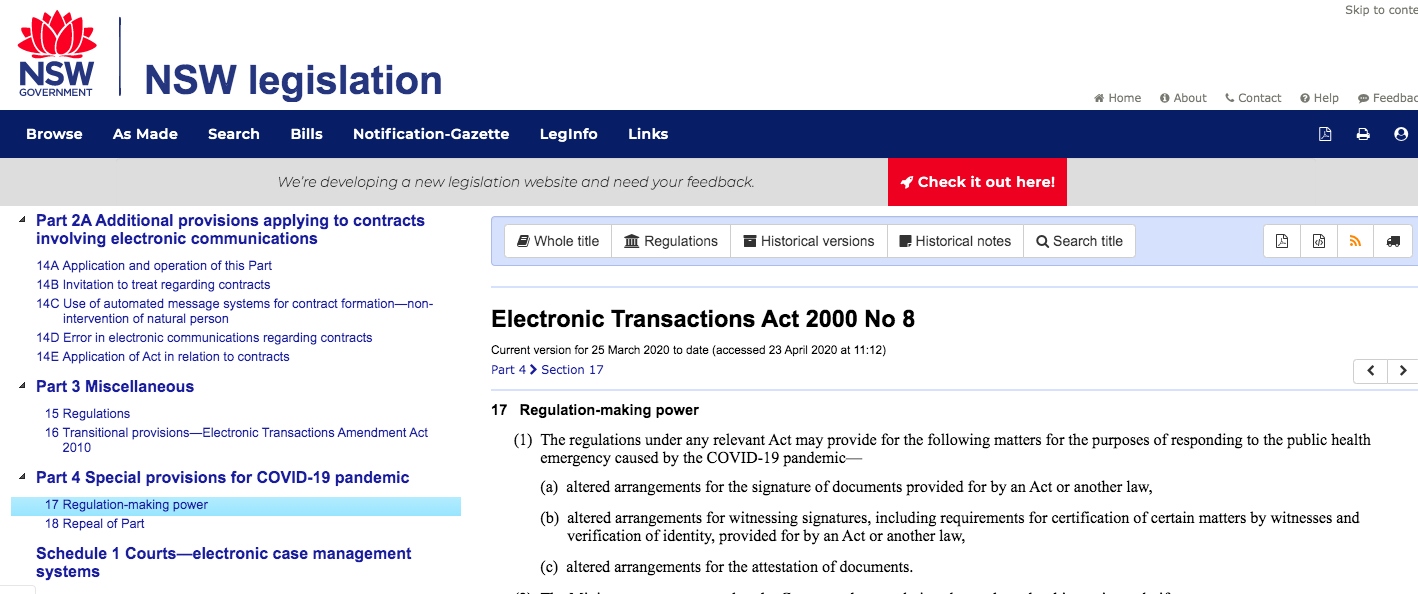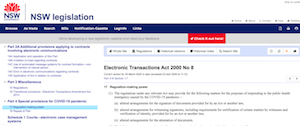This, of course, raises a few questions including
Firstly what does “during COVID-19” actually mean in terms of timing of the temporary regulation
Does the follwing mean that the process must be recorded and kept on record and where should that record be kept?
“Under the new regulation, a witness must see a person signing the document in real-time to confirm the signature is legitimate, but now they can do so using videoconferencing technology.”
And, so on and forth.
It’s a start though. It will be interesting to see how quickly other states now approach the issue now that NSW has tackled it.
Click on the image below to go to the amendments
Australian Lawyers Weekly reports the following development in NSW
A new temporary regulation made by NSW Governor Margaret Beazley allows for videoconferencing technology to be used in witnessing legal documents during COVID-19.
The new temporary regulation, made under s17 of the Electronic Transactions Act, will help reduce face-to-face contact for the witnessing of documents such as wills, powers of attorney and statutory declarations during the ongoing coronavirus pandemic, NSW Attorney-General Mark Speakman said.
“Thousands of legal documents are executed everyday in the presence of one or more witnesses, but COVID-19 restrictions have made it difficult for many people to do so in-person,” he said.
“Our first priority is always the safety and wellbeing of NSW residents, which is why we are changing the way these documents can be witnessed while the pandemic endures.
“Under the new regulation, a witness must see a person signing the document in real-time to confirm the signature is legitimate, but now they can do so using videoconferencing technology.”
In a statement, Mr Speakman said that the witness will sign the document, or a copy of the document, to confirm they witnessed the signature, which can be done on a hard copy that is scanned and sent to the witness or on an identical counterpart of the document the signatory signs.
Traditional methods of signing and witnessing these documents remain valid while the regulation is in force, he added.
“These changes will make it easier for people to stay home and reduce physical interactions, while still completing important transactions. To facilitate the witnessing of NSW statutory declarations during COVID-19, the categories of people who are authorised to witness documents [have] been expanded in line with federal legislation,” the statement read.
Stakeholders including the judiciary, the Law Society of NSW, the NSW Bar Association, Justice of the Peace associations and other relevant professional bodies were consulted on the changes.





